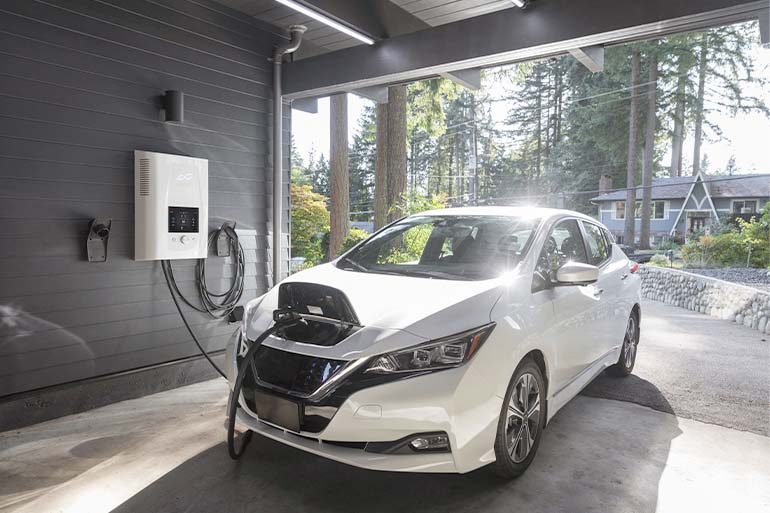It is hard to read the news right now without seeing articles about the changing economy and cost-of-living increases, so, it is only natural that many people are looking into how they can make savings on their outgoings in different areas of life. From grocery shopping to utility bills, there are numerous ways we can shop around and hopefully find a better deal.
But is not just a question of tightening our belts to save some money on smaller items. When it comes to big purchases and monthly expenditure, such as owning and driving a car, it is even more important to be informed and make comparisons regarding maintenance, insurance cover and running costs.
And nowadays, this can seem even more confusing, as it is not just a case of looking at the size, horsepower and models of different cars, but also the big debate regarding electric cars compared to gas/petrol cars that has been thrown into the mix.
As with many new technological products, when they were first introduced into the market, the initial high purchase prices of electric cars seemed unrealistic to the regular customer. But now, as more affordable models are hitting the market, many people are curious about the long-term savings they could make if they switch from gas/petrol to an electric vehicle.

So, let´s have a look at difference in electric car maintenance costs vs gas or petrol cars
You many think that, because an electric car includes cutting edge technology and is more high-spec, it would be much more expensive to maintain than a traditional fuel powered car. However, this is actually a myth. Here are a few of the reasons why…
1. The engine
Just like in the human body, the heart of the vehicle – the engine - is a complex machine with numerous components that must work together to provide the power required to give it life.
A conventional fuel engine (or ICE: internal combustion engine) has more than 200 parts, which need to be maintained and repaired to keep the engine in good working order. Over time, there is more likelihood that one of these hundreds of components such as the crankshaft, carburettor, pistons, etc., will suffer from wear and tear, or become defective, and therefore need repairing. Fuel engine faults, can be very costly to repair as mechanics need to strip down the engine to investigate the problem, find the fault and then replace the damaged parts. This is a long and costly process as, with the average labour costs of car mechanics being around 50-100€ per hour, the repair bill will soon add up.
In comparison, an electric car engine or motor only has 20-25 parts, which significantly reduces the probability of complications, and the associated investigation and repair time needed to fix the problem. In addition, an electric car does not require the user to make regular oil and water checks and changes. This also reduces the possibility that the fluid levels will get too low, either from a leak, or lack of attention from the owner, which can completely blow the engine altogether.

2. The battery
On the contrary, you may have heard stories that that cost of an electric car battery, which is essentially the heart of the electric motor, can be very costly to replace too. However, many manufacturers give warranties that cover the lithium-ion battery for years, or up to a specific mileage. This is because the makers are well aware of the concerns people have about battery life and so, to maximise the sales potential of electric vehicles (EV´s) the sales prices include battery cover under warranty of between 3 and 7 years or per thousands of miles, depending on the brand. For example, Tesla gives 4 years warranty and up to 50,000 miles as a basic warranty which can be extended, and some brands offer even more coverage.
These warranties generally include cover for typical defects regarding the electric motor and invertor and can also include charging equipment. This is all part of the package to give consumers peace of mind that the battery will not let them down and an electric car is a good long-term investment.
3. General servicing
As mentioned briefly above, the maintenance costs of gas/fuel powered cars, include regular check-ups by a mechanic, which are usually done in the annual service, or per every 5000 miles. This is not only costly in terms of paying physical cash for a mechanics time, but also costly in terms of your own time and convenience. I am sure we have all experienced the hassle of trying to find the time to take and leave your car in the garage and live your normal life without wheels while it is being looked at.
EV´s do not require maintenance checks as regularly, such as oil checks/changes, fuel filters, transmission fluid, drive belts, spark plugs etc and other types of things included in a normal service or tune-up. But please note, if you are opting for a Hybrid electric vehicle (HEV) you will still be required to do these checks due to the hybrid nature of the engine.
In terms of electric cars, other maintenance requirements are similar to a normal gas/fuel car, and it is recommended to have it serviced every year to check for general wear and tear of the following:
-
Tyres and tyre balancing should be checked every 7500 miles with the objective of extending their longevity. This is because EV´s have a low centre of gravity and some argue that this can cause tyres to wear out more quickly.
-
Brakes, brake fluid and brake pads are vitally important, on both types of cars, and should always be high priority. In comparison to gas/fuel cars, the maintenance costs for electric vehicles can be lower in this area. This is because EV´s capture kinetic energy as the cars speed is reduced – known as “regenerative braking” – which means that the brake pads are not worn out as quickly and won’t need to be replaced as often.
-
Cooling system and filters – you don’t need to change oil/fuel filters in an EV, but you do need to check the cooling system and cabin air filter. However, this is not required annually and is recommended every few years or for every 30,000 or so miles driven.
So, how much can I save on electric car maintenance costs vs gas/fuel cars?
Obviously, this is the million-dollar question, and it is very hard to give a figure, due to the sheer amount of different vehicles and factors in question.
In a recent study by We Predict, a firm that specialises in predictive analytics suggested that electric cars could cost up to 31% less for general maintenance and servicing than the traditional fuel engine cars. This is based on the first 3 years of the car´s “life” and was based on statistics of repairs, diagnostics, and maintenance costs of over 13 million 2018 model vehicles and the repairs. In the initial 3 years, the average price of servicing electric cars was $514 compared to $749 for a fuel powered car, which is a saving of around one third of the price. Electric cars cost an average of $77 in maintenance, and fuel cars cost $228. In addition, it found that the repair bills were also 22% lower.
This is an overview of some of the considerations that you need to investigate if you are looking into the difference in maintenance costs of electric versus gas or fuel powered cars.
If you want to delve more deeply into the EV´s versus fuel/gasoline, and see more specific comparisons and predicted costs/price per mile of owning and driving different sizes and types of car – you can check out this useful pdf : How much are you really paying to drive?
You will hopefully already have read my recent article looking into “Car insurance for electric cars” which gave an insight into more specifics of insurance cover for EV´s.
|
If you are searching for car insurance in Spain, Caser Expat Insurance has the right policy for you! |
